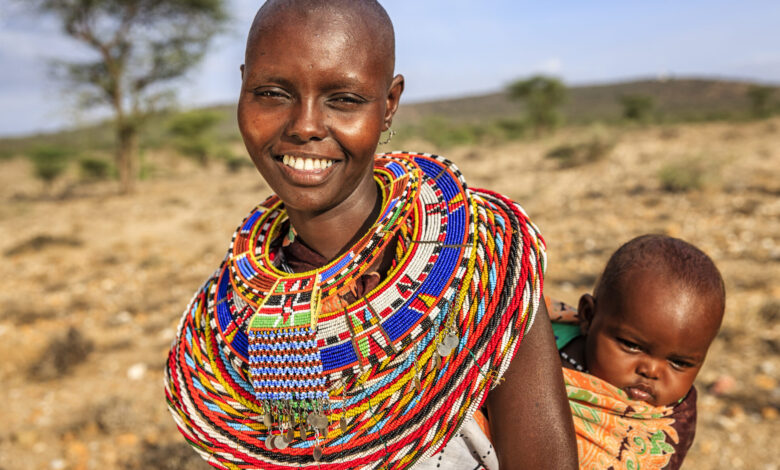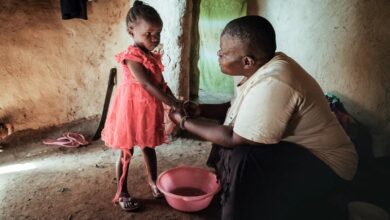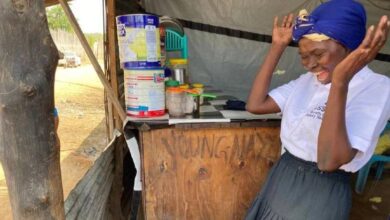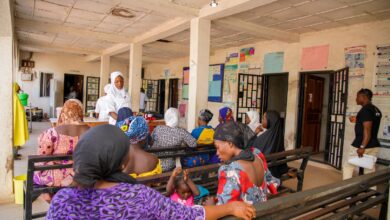
Young African mother from Samburu tribe carrying her baby , Kenya, Africa. Samburu tribe is one of the biggest tribes of north-central Kenya, and they are related to the Maasai. Photo Credit: hadynyah/Getty Images
Health United KingdomGlobal Eradication of Malaria? We’re Getting There!
A high-level efficacy vaccine against malaria developed by researchers affiliated with Oxford University, located in the United Kingdom, shows great promise for populations fighting against the mosquito-borne disease, so much so that it could lead to the global eradication of the illness by 2040.
“The data was being presented. And… you get goosebumps. It was absolutely extraordinary. It still is,” says Mainga Hamaluba, head of clinical research at the Kemri-Wellcome Trust and principal investigator on the phase III trial of the R21 vaccine. Hoping for the vaccine to be approved by 2023 seemed ambitious, but “then you see [the preliminary results from the trial] and you think: gosh, this might be possible.”
Following a 2019 trial in Burkina Faso, the R21 vaccine developed by researchers at the Jenner Institute at Oxford University has proven to be 77% effective, exceeding the World Health Organization target of 75%. The phase III trial will take place across Tanzania, Burkina Faso, Mali, and Kenya where 4,800 children will receive three doses four weeks apart, followed by a booster shot a year after the first injection. Should the results continue to be promising, the R21 vaccine could reduce death by as much as 75% by 2030 and, ultimately, eradicate malaria by 2040. The Serum Institute of India, the world’s largest vaccine manufacturer, has the capacity to deliver at least 200 million doses every year.



